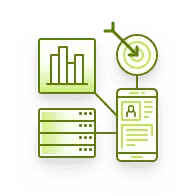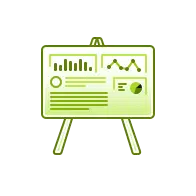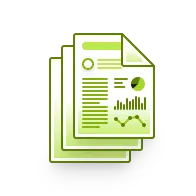Perfect Retail Execution: Using Retail Audit Software
March 26, 2021 By Stacey Woods

In today’s competitive consumer goods market, brands and wholesalers need to use every tool available to them to give them an advantage over their competition. Your retail execution strategy needs to be executed exactly as you set it out to be to ensure sell-through of your products. Among other things they must be in-stock (obvious we know!), properly presented and correctly labeled and priced on the shelf.
Utilizing retail audit software is the ideal way for merchandisers to capture all the critical field data needed to report back to managers on retail execution strategy; help managers analyze what works and what doesn’t so they can make informed decisions and adjustments to their retail execution plan.
What data should you be collecting?
A mobile audit software is a tool for field reps – typically merchandisers (though it can also be used by sales reps or van delivery staff) – to capture data relevant to your product and brand performance at the point of sales.
To make sure you have an effective retail auditing process, it’s important to understand the data you need to collect. It can be categorized into three sets: What you see, what you do and what you sell.
- What you see – this data provides a visual picture of the conditions in-store. Examples include stock levels, number of facings, competitor activity, and more
- What you do – measure and track the actions your team takes within each store to improve retail execution
- What you sell – your sales data measures how much of each product you sell over a period of time. Combining it with the other data mentioned above, you will have a complete picture of which sales activities and conditions in-store contribute to the highest sales
Now you know what data you need to collect, let’s look at how retail audit software helps you with your retail execution strategy.
1. Ensures stores adhere to commercial agreements
You pay slotting fees and have agreements with retail stores for product presentation and planogram compliance, but are your products misplaced regardless? Can you validate that and produce a store audit document in-store to prove to store managers they are not complying?
Store auditing software lets you create customizable audit forms, configured how you want them, for your reps to capture data whether your retailers are complying with your product placement agreements or not.
With ability to define optional and mandatory fields, field types, drop-down values, and validation rules, there’s no limit to the amount of data they can collect on-site, in a consistent manner, to verify and monitor compliance.
2. Store inventory levels are monitored
Retailers lose an estimated $634 billion to out-of-stocks each year and most stockouts happen due to defective shelf replenishment practices.
One of the reasons this happens is because wholesalers are using out-of-date practices to manage their inventory.
Using a retail audit app allows reps to check inventory levels everywhere in the store – stock stored in boxes or bins above and below the shelves, as well as stock in the storage room.
This will help predict and prevent stockouts (also known as voids) and stop consumers buying alternative items.
3. Reporting on competitor activity
Competitors are growing rapidly in the FMCG industry. Big traditional brands are now competing with smaller ‘upstarts’ and mass-market products share shelf-space with private-label goods.
You need to be aware of the swift changes in the market and your visual merchandisers can use a retail audit app to keep an eye on what’s happening in the field.
They can produce comprehensive competitor reports using structured surveys include POS advertising, positioning of products within the store and on the shelf, pricing, and promotional materials.
4. Managers can ‘see’ what’s happening in the field
It’s all very well hearing about what’s happening out in the field but what if you want visual evidence? The good news is that your store auditing software will permit your reps to take pictures of displays, automatically tagged by account and geo-location.
Photos are especially useful for revealing details about competitor packaging, shelf appearance, store tidiness, and promotional displays. They can also depict ‘before’ and ‘after’ scenarios which are a great way to demonstrate the immediate results of effective retail execution.
5. Consistent data collection drives decision-making
In order to be able to analyze data and derive actionable insights, data capture processes must be well structured and uniform. Consistency is the key. A store audit app enables just that.
6. Helps to prioritize store visits
Successful retail auditing depends on regular customer visits to ensure your products are always displayed correctly and stocked, according to your agreements, to maximizes sales.
Activity and route planning capabilities leveraging store audit data allows you to determine and set the optimal schedule for your field reps based on criteria such as last visit date, retail store product sales, store location, and audit issues captured in prior visits. This will ensure you visit and audit the right customers at the right time.
Retail execution software provides the essential data to keep you on top of your execution strategy.

























